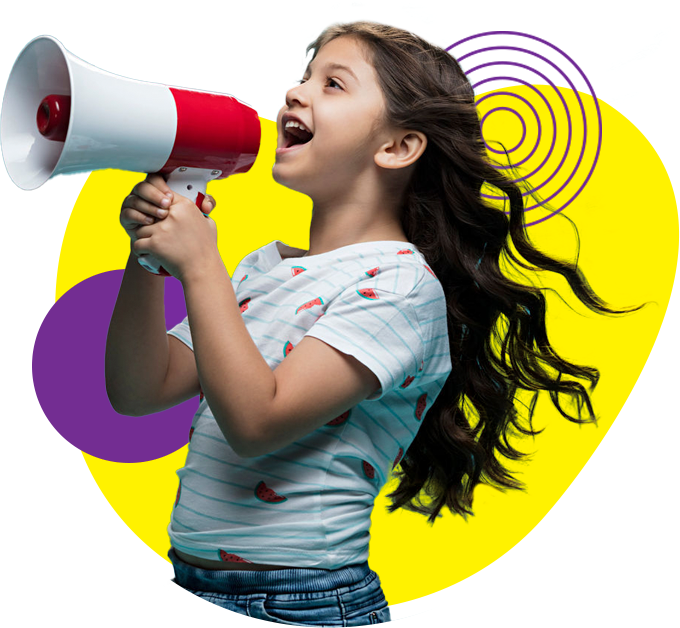



Creative Rhyming Words for Kids: Learning Made Fun and Simple

Explore engaging rhyming words for kids, creative examples of words that rhyme for fun, and fun activities to make language learning exciting and enjoyable.




Introduction to Rhyming Words
Rhyming words make learning fun and exciting for kids! They are words that sound similar and often share the same ending sounds, like "cat" and "hat" or "fun" and "run." Rhymes are not just for poetry; they are essential tools that make language easier and more enjoyable to learn.
In this blog, we’ll explore some rhyming words for kids, provide a fun rhyming words list, and show examples of words that rhyme with fun. These will not only entertain children but also improve their vocabulary, pronunciation, and creativity.
What Are Rhyming Words?
Rhyming words are words with similar ending sounds. For example, "sun" rhymes with "run," and "play" rhymes with "day." Kids love rhyming because it adds rhythm and music to their learning process. It’s a playful way to introduce them to new words and enhance their phonics skills.
When kids learn rhyming words, they also learn patterns in language, which helps them become better readers and writers. Including a fun rhyming words list in their learning activities makes the process even more enjoyable!
Why Are Rhyming Words Important for Kids?
Rhyming words offer several benefits for children:
1. Build Vocabulary: Rhymes introduce kids to new words in an enjoyable way.
2. Boost Memory: Repeating rhyming words improves memory retention.
3. Improve Reading Skills: Recognizing rhymes helps kids understand language patterns.
4. Encourage Creativity: Rhymes inspire kids to think creatively and make their own rhymes.
Whether it’s through songs, poems, or activities, teaching rhyming words for kids is a great way to combine fun and learning.
Words That Rhyme with Fun
Let’s start with a few simple examples of words that rhyme with fun. These are easy and perfect for young learners:
1. Run
2. Sun
3. Bun
4. Gun
5. Done
6. Pun
These words are simple, relatable, and commonly used, making them ideal for children to practice. You can use them in sentences or songs to help kids understand their usage better.
Fun Rhyming Words List for Kids
Here’s a complete fun rhyming words list to make learning exciting for children:
Short Rhymes
· Cat: Hat, Bat, Rat, Mat
· Dog: Frog, Log, Jog
· Car: Star, Bar, Jar
Longer Rhymes
· Table: Fable, Cable
· School: Cool, Pool, Tool
· Flower: Power, Shower
This list can be used in various activities, such as matching games, rhyming puzzles, and crafting rhyming sentences.
Rhyming Activities for Kids
Here are some fun and simple activities to teach rhyming words for kids:
1. Rhyming Games
Create a game where kids match rhyming words. For example, pair "fun" with "sun" or "cat" with "hat."
2. Rhyming Songs
Sing songs with rhymes. Popular nursery rhymes like "Twinkle, Twinkle, Little Star" or "Baa Baa Black Sheep" are great examples.
3. Create a Rhyme Chain
Start with a word like "run" and let kids add more rhyming words like "sun," "bun," and "gun." This activity encourages quick thinking and creativity.
4. Rhyming Crafts
Make flashcards with pictures and words. Ask kids to pair rhyming words or create a story using them.
How to Teach Rhyming Words to Kids
Teaching rhymes can be easy and enjoyable with these tips:
1. Start Simple Use easy words like "cat," "dog," and "sun" to introduce rhyming.
2. Use Visuals Show pictures of rhyming words to make the concept clear.
3. Encourage Practice Ask kids to come up with their own rhymes. Even silly rhymes are a great way to learn!
4. Make It Fun Use songs, games, and stories to keep kids engaged and excited about learning.
By combining these methods with a fun rhyming words list, you can make learning an enjoyable experience for kids.
Why Play-Based Learning Works Best
Play-based learning is perfect for teaching rhymes. Through games, songs, and creative activities, kids naturally grasp new words and sounds. This approach makes learning less about memorization and more about exploration and fun.
Using activities like rhyming puzzles or creating a rhyme chain is a wonderful way to integrate rhyming into playtime. It aligns with the philosophy of making education enjoyable and interactive for young learners.
Practical Examples of Rhyming Words for Kids
To make rhymes relatable, use everyday examples:
· "The sun is bright, let’s go for a run."
· "I see a little bun, isn’t it fun?"
These examples connect rhymes to kids' daily lives, making learning seamless and relevant.
Conclusion
Rhyming words are more than just a fun way to play with language; they’re an essential part of early education. By introducing a fun rhyming words list, teaching words that rhyme with fun, and engaging kids in creative rhyming activities, you can lay a strong foundation for their language development.
Also, the play-based learning ensures that kids enjoy the process of discovering language through rhymes and other fun methods. So, the next time you’re teaching rhymes, remember to keep it simple, interactive, and joyful.
Let’s make rhyming an adventure that kids will love and remember forever!
